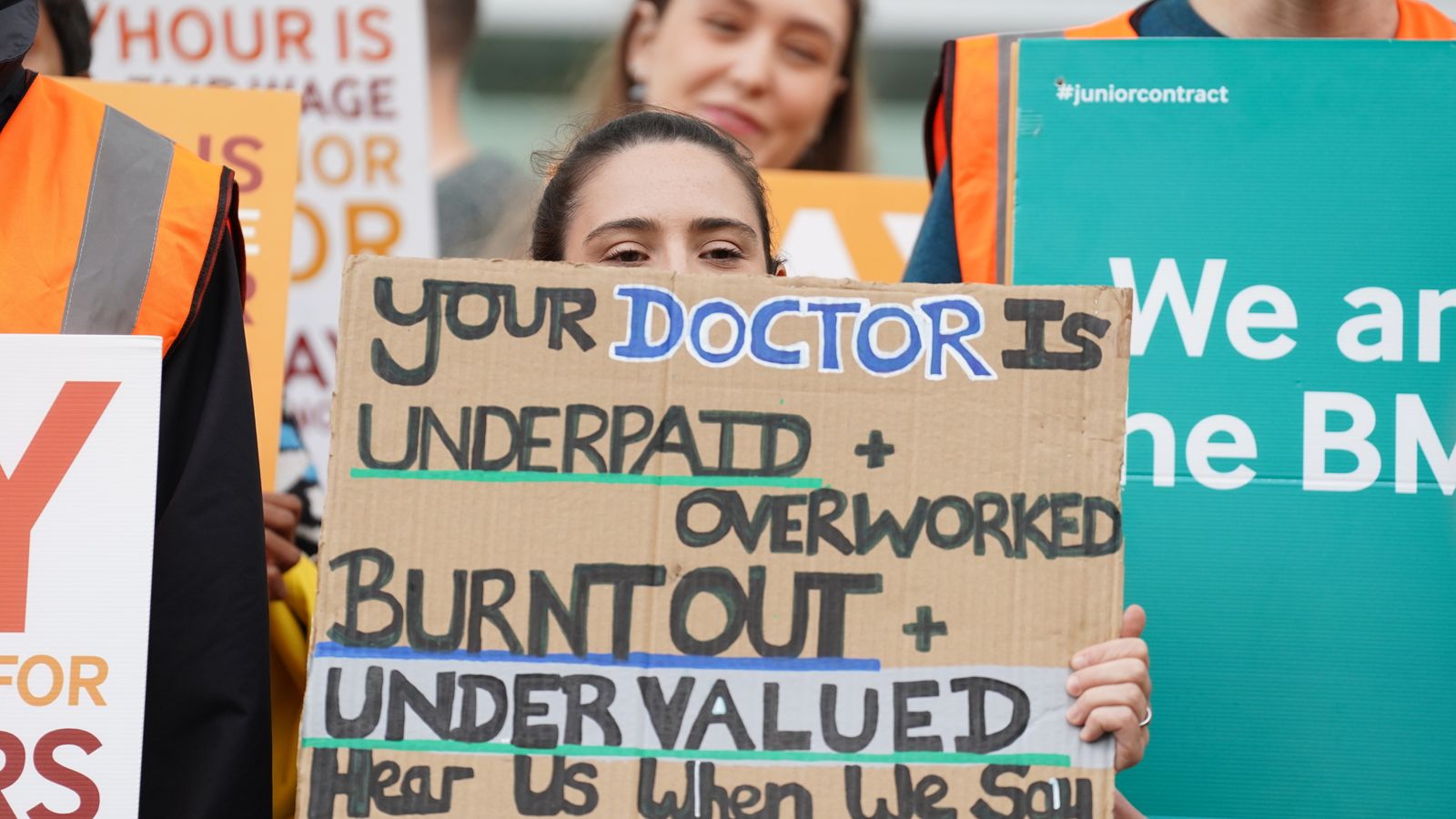The doctors at hospitals in England have commenced a fresh strike that will go on as their longest over a pay dispute that has been on for a while.
The strike began on Wednesday in a move that health chiefs fear will increase the pressure on health services during the yuletide.
Junior doctors, who are below the consultant level, will join picket lines on Saturday from 0700 GMT to the same time in a significant escalation of their ongoing wage dispute.
A further six days of strike action are scheduled by the doctors starting on January 3.
The state-funded National Health Service (NHS), which is under greater strain from seasonal respiratory infections, is experiencing one of its busiest times of the year due to the strike.
The UK Prime Minister Rishi Sunak and hospital administrators have criticised the strike, calling the protracted walkout their “worst fears realised.”
“We would encourage junior doctors to consider carefully the extremely significant impact striking at such a challenging time will have both on the NHS and for individual patients and to return to talks,” Sunak stated on Tuesday.
The strike was announced earlier this month by the British Medical Association (BMA) after talks with the government met a breakdown.
According to the union, junior doctors have been offered an additional 3.0% raise, on top of the 8.8% average increase they received earlier this year.

It declined the offer because the money would “still amount to pay cuts for many doctors” and distributed unevenly among various doctor grades.
The administrations of Scotland, Wales, and Northern Ireland handle matters on health policy while the UK government oversees that of England.
Junior doctors in Wales are scheduled to take a 72-hour strike starting on January 15.
Those in Northern Ireland are casting a ballot on whether to embark on possible strikes but have reportedly reached an agreement with the Edinburgh government with their Scottish counterparts.


